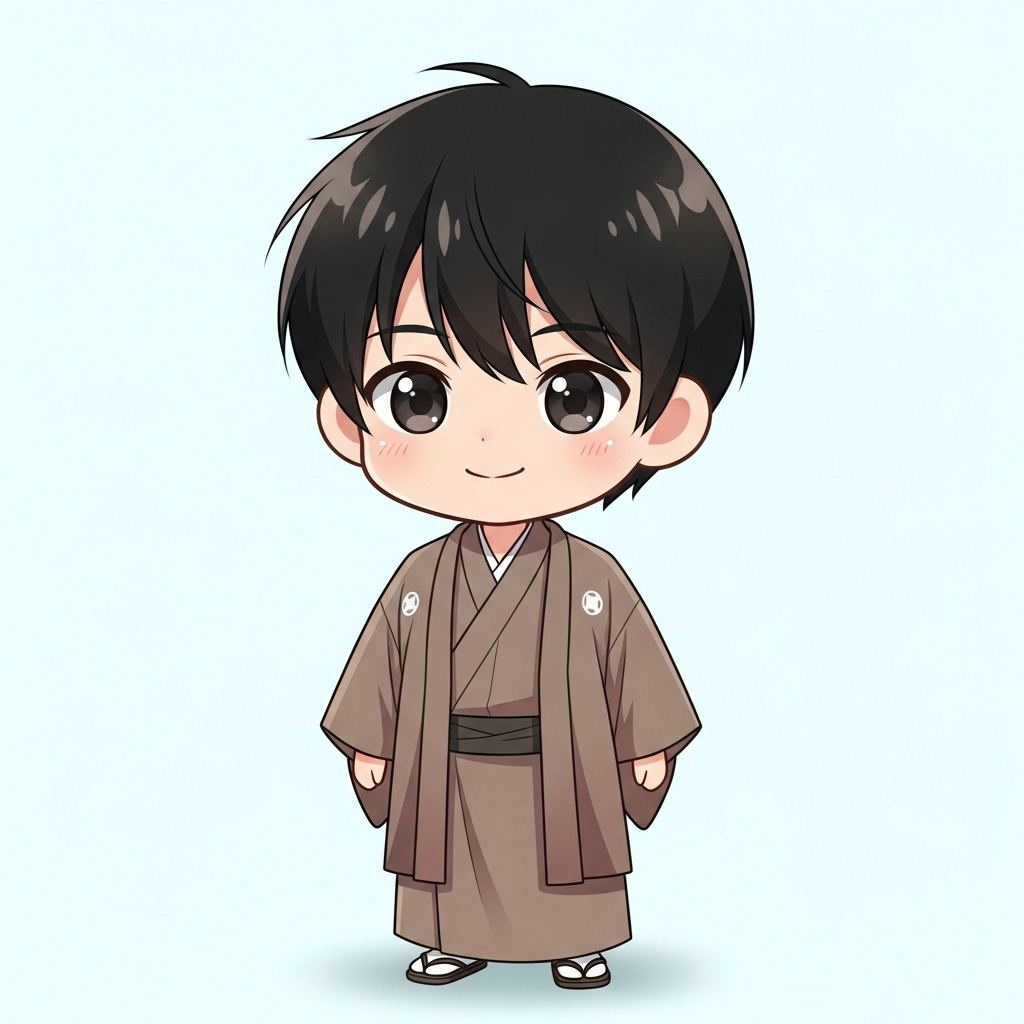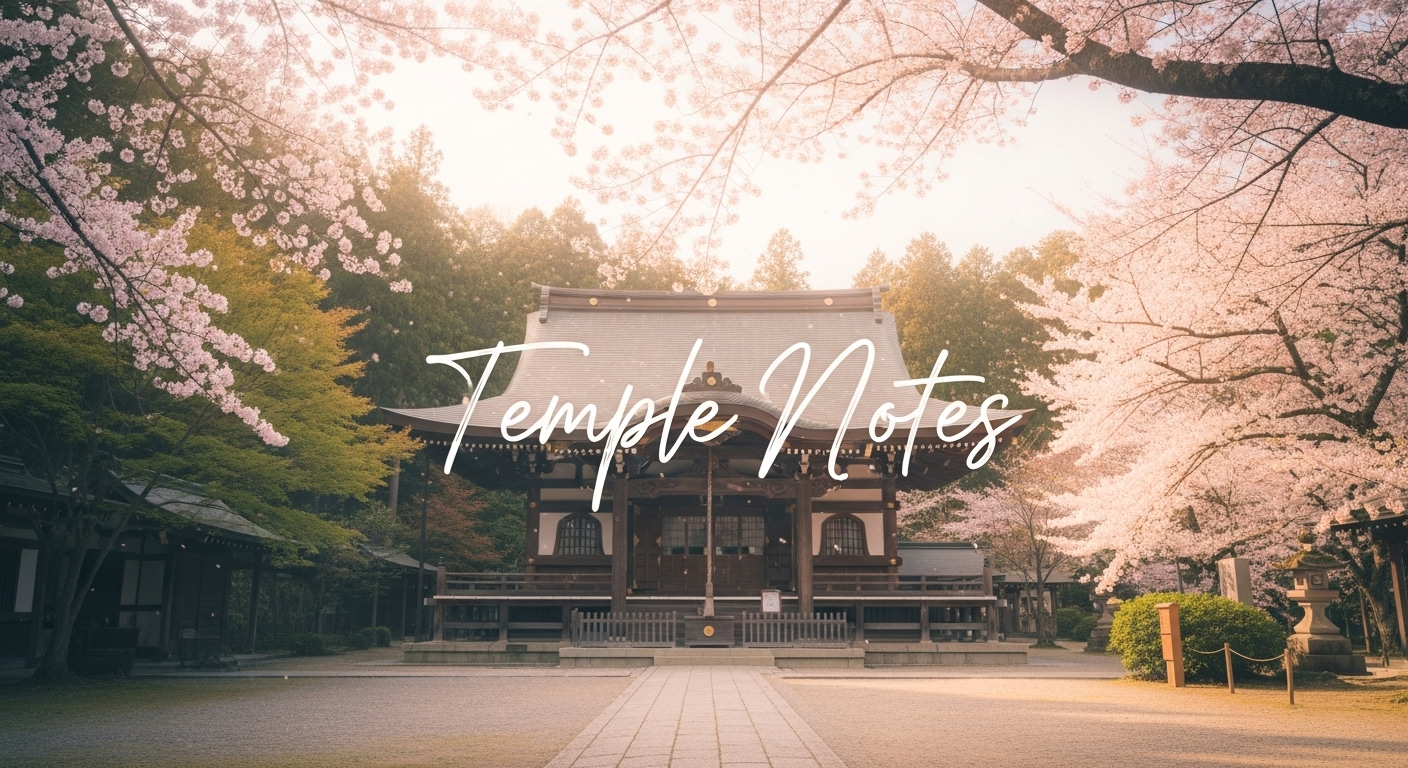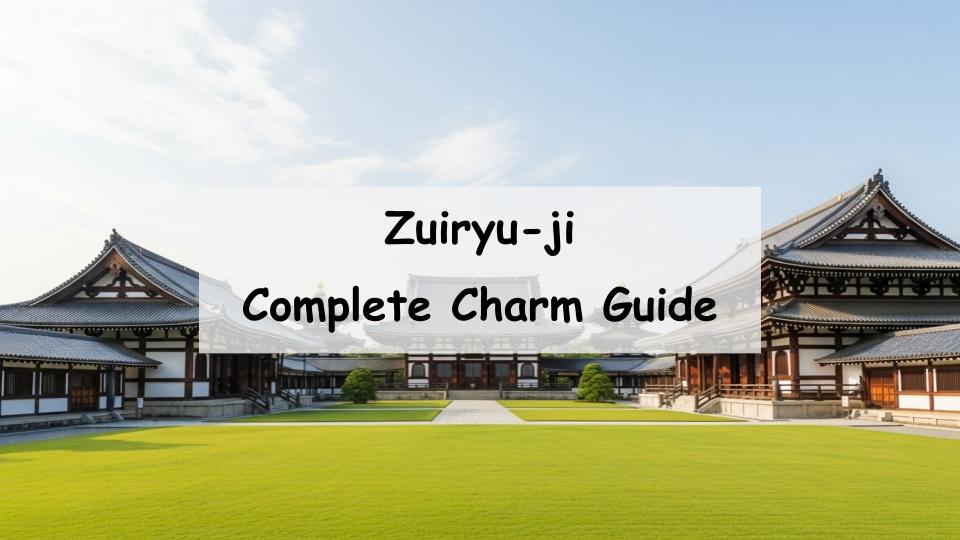Located in Toyama, Hokuriku, the national treasure Zuiryuji Temple captivates visitors with its majestic temple complex and serene gardens. Yet many wonder: “What makes Zuiryuji unique?” “What are the highlights?” “How do I get there?” The answer is simple: Zuiryuji combines historical significance with architectural beauty, while offering seasonal scenery that enchants throughout the year. This article introduces the temple’s features, highlights, and access information in detail. Whether you are planning your first visit or have an interest in Japanese history and architecture, this guide will help you discover the temple’s full appeal.
What is Zuiryuji? Basic Information and History
Origins and Historical Background
Zuiryuji Temple was built by Maeda Toshitsune, the third lord of the Kaga Domain, to commemorate his predecessor, Maeda Toshinaga. Construction began during the Shōhō era (1644–1648) and took nearly 20 years, with completion around 1663. The temple was established as a Sōtō Zen temple and originally featured a full seven-hall complex surrounded by moats.
Why It Was Designated a National Treasure
The Sanmon (Main Gate), Butsuden (Buddha Hall), and Hattō (Lecture Hall) are designated national treasures. Their value lies in the preserved Edo-period Zen architecture, showcasing precise symmetry, refined wooden craftsmanship, and historically significant temple design.
Its Role as a Sōtō Zen Temple
As a temple of the Sōtō sect, Zuiryuji serves as a site for prayer, memorial services, and Zen practices. At the same time, it functions as a cultural landmark, open to visitors interested in architecture, history, and spirituality.
The Beauty and Features of Zuiryuji
The Elegance of Temple Layout
One of Zuiryuji’s most striking features is its perfectly aligned temple layout, where the Sanmon, Butsuden, and Hattō are positioned along a straight axis. The seven-hall arrangement, connected by corridors, reflects order and harmony typical of Zen architecture.
The Linear Alignment of Sanmon, Butsuden, and Hattō
This alignment creates a natural visual flow from the entrance gate to the inner halls, guiding visitors seamlessly through the temple grounds. The proportional balance and rhythm of the structures are masterpieces of Edo-period design.
Characteristics of Sōtō Zen Style
Simplicity, symmetry, and restrained elegance define the architecture. The wooden structures highlight the Sōtō sect’s preference for austerity and clarity in temple design.
Architectural Details and Fine Craftsmanship
Intricate carvings, roof structures, bracket complexes, and decorative transoms reflect the skill of Edo-era artisans. Every detail demonstrates the temple’s architectural sophistication.
Seasonal Gardens and Natural Beauty
The temple’s atmosphere changes with the seasons. Cherry blossoms in spring, lush greenery in summer, vivid maple leaves in autumn, and snow-covered gardens in winter all bring distinct charm to Zuiryuji.
Must-See Highlights of Zuiryuji
The Majestic Sanmon (Main Gate)
The imposing Sanmon welcomes visitors with grandeur. Its scale and intricate woodwork immediately establish the temple’s solemn atmosphere.
The Serenity of the Butsuden (Buddha Hall)
Inside the Buddha Hall, a calm and sacred environment awaits. Natural light and architectural proportions create a tranquil setting for prayer and reflection.
The Hattō and Its Ceiling Art
The Lecture Hall is where sermons and ceremonies take place. Visitors can also appreciate the decorative elements and painted ceilings that enhance its atmosphere.
Corridors and Seasonal Night Illumination
Long corridors link the main halls, allowing visitors to walk through the temple in a continuous flow. At certain times of year, the temple holds night illuminations, transforming the grounds into a mystical and unforgettable scene.
Spring Cherry Blossoms and Autumn Foliage
The temple grounds are particularly popular in spring and autumn. Blossoming cherry trees and fiery red maple leaves frame the historic architecture beautifully.
Night Viewing and Light-Up Events
The illuminated halls at night create a magical and spiritual ambiance. This special event offers a completely different experience from daytime visits.
Access to Zuiryuji Temple
By Train or Bus
Zuiryuji is about a 10-minute walk from JR Takaoka Station’s south exit and about 15 minutes on foot from Shin-Takaoka Station. Both stations offer convenient access for visitors traveling by train.
By Car and Parking Information
Parking is available near the temple, with spaces for both cars and buses. During peak tourist seasons or illumination events, parking may become crowded, so public transportation is often recommended.
From Toyama Station
From Toyama Station, take the Ainokaze Toyama Railway to Takaoka Station, then walk about 10 minutes. The total travel time is approximately 30–40 minutes.
How to Enjoy Your Visit
Visiting Hours and Admission Fees
Regular opening hours are typically from 9:00 AM to 4:30 PM. Admission fees apply, with special rates for adults and discounts for children and groups. Be sure to check official information before your visit, as times may vary during special events.
Combine with Nearby Attractions
Takaoka City has many historical landmarks and cultural spots in addition to Zuiryuji. Exploring them together makes for a fulfilling sightseeing experience.
Best Photography Spots
Popular photo compositions include capturing the Sanmon from the front approach, the Butsuden framed by the gate, and scenic shots of corridors with seasonal gardens. Morning and evening light provide especially dramatic results.
Conclusion
The Appeal of Zuiryuji in Summary
Zuiryuji Temple stands as a rare and outstanding example of early Edo-period Zen temple architecture. Its national treasure halls, orderly layout, refined design, and seasonal beauty make it one of Toyama’s most iconic landmarks.
Recommendations for First-Time Visitors
For newcomers, it is best to follow the natural flow from the Sanmon to the Butsuden and Hattō, experiencing the architectural axis step by step. Checking event schedules, such as illuminations or special openings, will enhance the visit.
Useful Travel Planning Information
With easy access from Takaoka and Toyama, Zuiryuji is a convenient yet deeply rewarding destination. Confirm parking, transportation, and visiting hours ahead of time to make the most of your trip.
A Message from the Guide

Near Toyama Bay, the seafood is delicious, so you can fully enjoy the local dining experience as well.







Comment